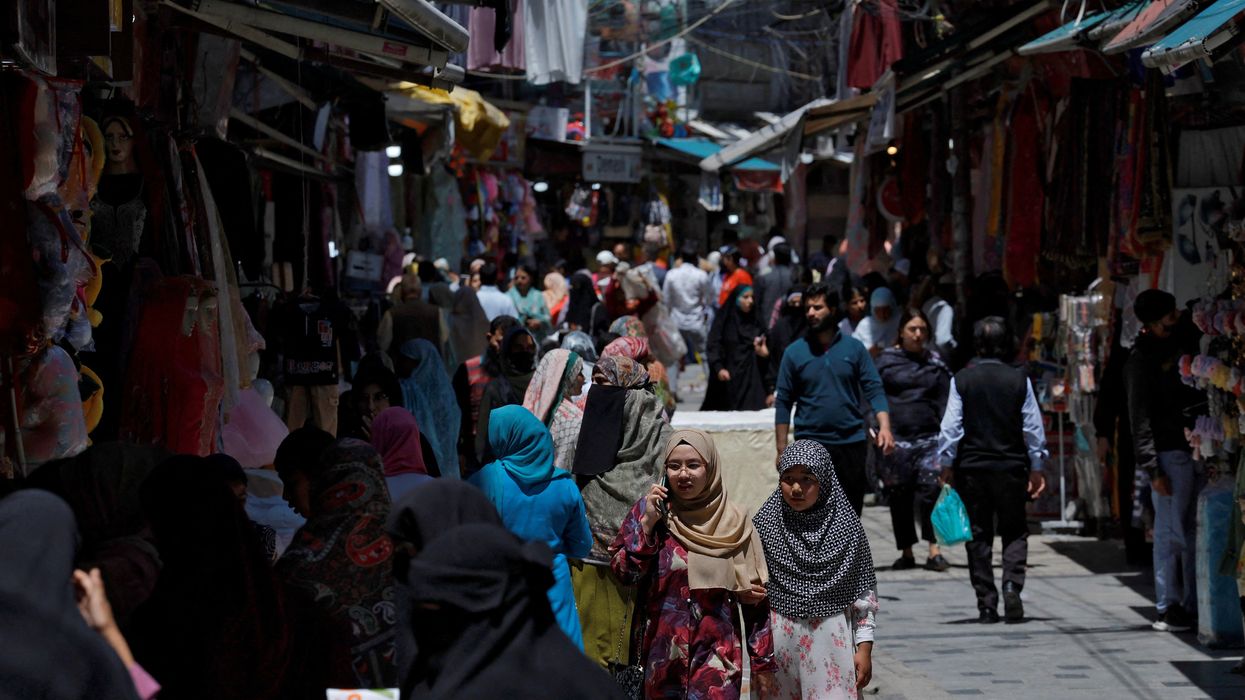TOP military officials from India and Pakistan were set to speak on Monday, following a ceasefire that ended four days of missile, drone and artillery attacks across the border. The call between the heads of military operations was scheduled for 12:00 pm (0630 GMT).
The Indian army reported that the previous night was the "first calm night in recent days" in Kashmir and along the western border with Pakistan. "The night remained largely peaceful across... Kashmir and other areas along the international border," the army said. "No incidents have been reported, marking the first calm night in recent days."
The truce was announced late Saturday by US president Donald Trump after fighting that killed at least 60 people and displaced thousands. Trump made the announcement in a series of social media posts, pledging to increase trade "substantially" with both countries.
Despite initial accusations from both sides of ceasefire violations shortly after the announcement, a second night of calm was observed in Poonch, a frontier town in Indian-administered Kashmir that was among the worst-hit areas. At least 12 people were killed in Poonch and most of the 60,000 residents had fled their homes. Some residents began returning on Sunday.
ALSO READ: What is Operation Sindoor, India's strikes in Pakistan?
Abdul Razzak, 50, returned home with four children and two other relatives after fleeing with nothing but their clothes. "It was our worst nightmare... We've seen our people die around us, so none of us want a war," he told AFP.
On Sunday, Indian and Pakistani military officials held separate briefings. Pakistani military spokesman Lieutenant General Ahmed Sharif Chaudhry said, "We have delivered the promise we made to our people," calling the ceasefire a "success on the battleground." Pakistani Air Vice Marshal Ahmed Aurangzeb added, "We re-established deterrence and neutralised key threats."
Indian Lieutenant General Rajiv Ghai said, "We have thus far exercised immense restraint so far and our actions have been focused, measured and non-escalatory." He added, "Any threat to the sovereignty, territorial integrity and safety of our citizens will be met with decisive force."
ALSO READ: India's response to Pahalgam attack was limited to terror targets: Vikram Doraiswami
Thousands of schools remained closed across Pakistan-administered Kashmir as debris from the strikes was cleared, according to local official Naveed-Ul-Hassan Bukhari.
The escalation began before dawn on Wednesday, when India launched missile attacks it said destroyed "terrorist camps" in Pakistan-administered Kashmir. The strikes followed an April 22 attack on tourists in Indian-administered Kashmir that killed 26 civilians. India blamed Pakistan for the attack, while Islamabad denied involvement and responded with artillery fire.
Pakistan claimed it had downed five Indian fighter jets. India has not commented on this claim.
Abdul Basit, of the S Rajaratnam School of International Studies in Singapore, said the military talks on Monday would be about modalities of the ceasefire rather than policy decisions. He said, "The aim is to avoid any miscalculations, because right now one spark could quickly move towards a nuclear catastrophe."
Since 2019, after India revoked Jammu and Kashmir's limited autonomy and placed it under direct rule from New Delhi, terrorists have increased activity in the region. Kashmir is claimed in full by both countries.
India reopened 32 airports on Monday following the ceasefire. The Airports Authority of India said the airports — from Srinagar in Indian-administered Kashmir to Bhuj in Gujarat — were now available for civil operations "with immediate effect". They had been closed last week after the fighting began.
Leading Indian airline IndiGo said it would "progressively commence operations on the previously closed routes".
In Pakistan, the stock market surged on Monday. The benchmark KSE-100 Index opened 9.26 per cent higher at 117,104.11 points. Sana Tawfiq, head of research at Arif Habib Limited, said, "Today's sharp surge in the stock market stems from a powerful convergence of bullish triggers that have swiftly turned investor sentiment from fear to opportunity."
The rise followed the ceasefire announcement and came after the International Monetary Fund (IMF) approved a loan programme review for Pakistan on Friday, releasing around $1 billion in funds and clearing a new $1.4 billion bailout.
"This positive shift is reinforced by the IMF's dual approvals, providing both critical funding and international validation of Pakistan's reform path," Tawfiq said. Senior economist Sanie Khan added, "While optimistic, sustaining momentum requires ceasefire compliance, accelerated reforms, and managing global headwinds like oil prices."
A policy rate cut by the country's central bank was also seen as a factor behind the stock market gains.
(With inputs from agencies)





